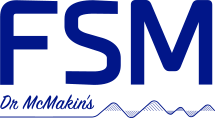How to Obtain a License for Frequency Specific Microcurrent (FSM) Treatment
In the United States:
Securing a license to administer treatments involving electrical stimulation devices, including Frequency Specific Microcurrent (FSM), is contingent upon your healthcare profession. Typically, this practice falls within the purview of healthcare professionals like physical therapists, chiropractors, and certain medical doctors.
If you do not currently have a license to treat with electrical stimulation you cannot treat others with FSM even if it seems safe to do so.
Within Your State:
Licensing requirements can significantly differ between states. It is imperative to consult your state’s medical board or regulatory authority to ascertain which modalities involving electrical stimulation are permitted for patient treatment in your region. This authoritative body can provide you with the most accurate and current information regarding licensure prerequisites and the scope of practice for FSM treatments.
For International Inquiries:
For individuals residing outside the United States, it is essential to research the local regulations governing the use of electrical stimulation for patient treatment. Government agencies or healthcare regulatory bodies in your country will outline any restrictions, licensing procedures, or qualifications needed to provide FSM treatments to patients legally.
Collaborating Under Another Medical Practitioner’s License:
In certain situations, individuals interested in providing Frequency Specific Microcurrent (FSM) treatments may choose to work under the supervision and license of an established medical practitioner. This collaborative approach allows for the application of FSM techniques while leveraging the expertise and credentials of a licensed healthcare professional. While the specifics can vary by region and profession, this arrangement often entails working closely with the supervising practitioner, adhering to their scope of practice, and obtaining the necessary permissions and certifications to operate within their established framework. This collaborative model not only enables individuals to gain valuable experience but also ensures that FSM treatments are administered within the boundaries of existing healthcare regulations and guidelines. It is crucial to establish clear roles, responsibilities, and legal agreements when pursuing this cooperative avenue to ensure both patient safety and legal compliance.
Consideration of Alternative Specialties:
If you lack prior medical training but aspire to offer FSM treatments, there are alternative healthcare specialties to explore. Depending on your interests and goals, consider pursuing education and licensure in fields such as:
- Massage Therapist: Massage therapists often complement their practice with electrical stimulation modalities, making it a suitable option for those interested in FSM.
- Acupuncturist: Acupuncture practitioners may incorporate electrical stimulation into their treatments, aligning with the principles of FSM.
- Naturopathic Doctor: Naturopathic doctors receive training in various holistic therapies, which may encompass the use of electrical stimulation devices for patient care.
- Physical Therapist: Physical therapists utilize a wide range of therapeutic techniques, including electrical stimulation, in the rehabilitation and pain management of patients.
- Mental Health Professional: In some cases, mental health professionals may employ FSM as part of holistic treatment approaches to address psychological and emotional concerns.
Regardless of your chosen path, adherence to regulatory requirements and continuous professional development is essential. Always prioritize patient safety and ethical practice in your pursuit of becoming a licensed FSM practitioner.
